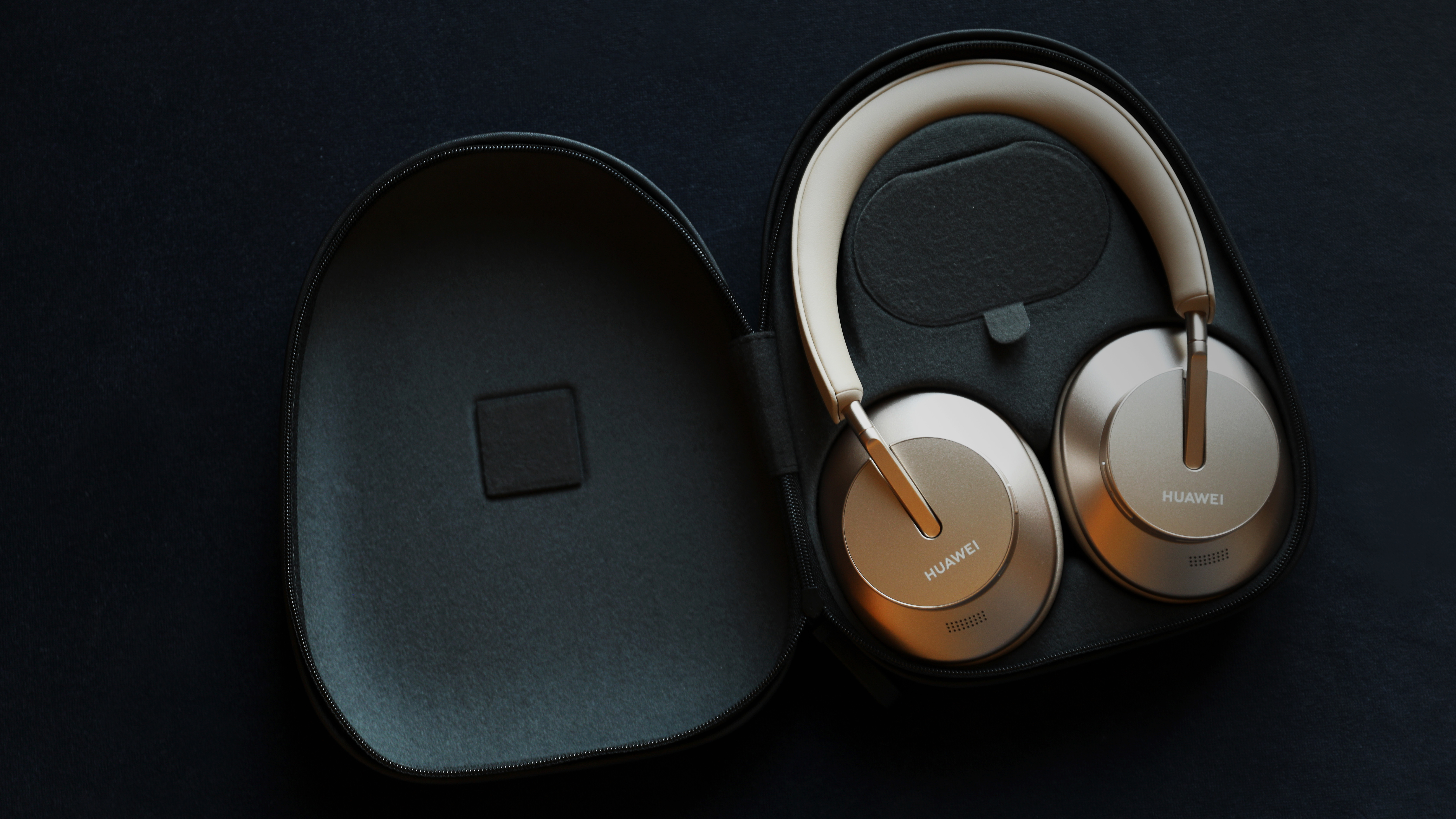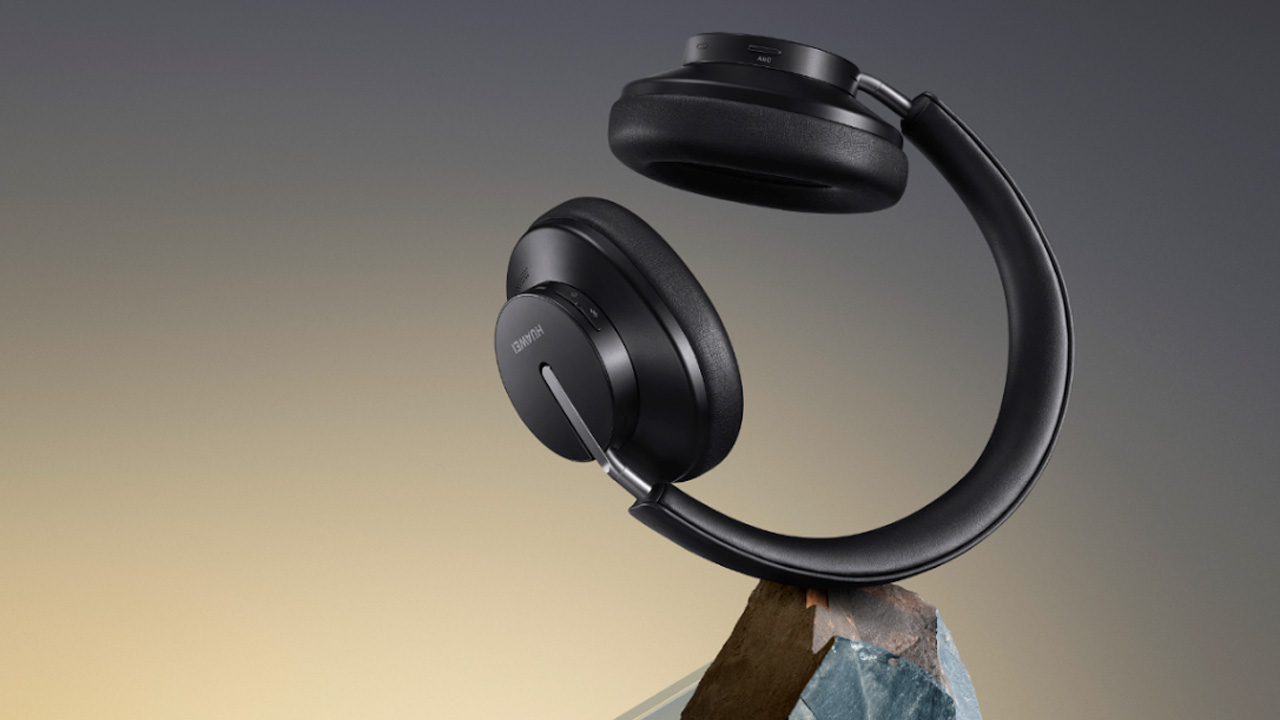Could the Huawei FreeBuds Studio prove a rival for Apple's AirPods Studio?
They certainly sport similar names

Sign up for breaking news, reviews, opinion, top tech deals, and more.
You are now subscribed
Your newsletter sign-up was successful
The world has been holding its breath for the rumored Apple AirPods Studio, but it seems smartphone manufacturer Huawei has beaten the tech giant to the punch with its own, similarly-named over-ear headphones.
The Huawei FreeBuds Studio were announced alongside the new Mate 40, and come with active noise cancellation, a 20-hour battery life, and a sleek, stylish design.
- Apple AirPods Studio release date, price, and rumors
- The best noise-cancelling headphones of 2020
- Read our hands-on Huawei Mate 40 Pro review
According to Huawei, the new headphones will deliver "great sounding music with rich detail", thanks to an ultra-wide frequency band of 4Hz - 48kHz (for comparison, most headphones have a range of 20Hz - 20kHz, which is about the same as the human hearing range).
Inside the headphones are 40mm polymer diaphragms, that allow for "a wider frequency response and higher sensitivity), and they support Huawei's own L2HC wireless audio codec to achieve an audio transmission rate "of up to 960kbps".
That should be enough to support your Hi-Res Audio files – though you do need a HUAWEI Mate 40 Series or HUAWEI P40 Series running EMUI 11 or above to use this codec.
Adaptive noise cancellation
The Huawei Freebuds Studio come with a "double-layer sound insulation structure" and dynamic active noise cancellation to block out environmental sound, with three ANC modes that can adapt to your surroundings.
There's also awareness and voice modes, which let you tap into your surroundings or have a quick conversation without removing your headphones.
Sign up for breaking news, reviews, opinion, top tech deals, and more.
In terms of connectivity, Huawei says that the FreeBuds Studio are "the industry's first dual antenna over-ear wireless headphone that offers 360-degree omnidirectional Bluetooth coverage". Essentially, this means that in high traffic areas with lots of signal interference like airports, the headphones can switch to the antenna with the strongest signal.
The headphones are capable of pairing with two devices at once, whether you're using Android, iOS, or Windows-based devices.
As we mentioned, battery life comes in at 20 hours with ANC turned on, rising to 24 hours when ANC is switched off – and with a 10-minute quick charge, the HUAWEI FreeBuds Studio can offer five hours of music playback with ANC on, or eight hours if the ANC is turned off.
So, how much will that set you back? In the UK, the Huawei FreeBuds Studio will cost £299.99, and will go on sale from November 3 – global availability is still TBC, but that works out at around $390 / AU$550. However, if you pre-order from October 22 to November 22, you can can claim a free Huawei Watch Fit.

Should Apple be worried?
In a word, no. While the Huawei FreeBuds Studio look very attractive and come with all the specs you'd expect from a pair of noise-cancelling headphones, it's unlikely that they'll be sold in the US, due to ongoing trade restrictions placed on the company.
That's a huge market to miss out on – and you can be sure that Apple will dominate in the US.
In any case, Apple is a far more well-known company, and the AirPods Studio have been the subject of speculation for years now – people are excited about the first Apple over-ear headphones, and the FreeBuds Studio have never enjoyed that hype. It's no coincidence that Huawei has opted to choose a similar name to the rumored Apple headphones.
So, while Huawei's wireless headphones may represent a cheaper alternative to the AirPods Studio (if price leaks are to be believed), they're unlikely to steal any of Apple's thunder when it finally announces its noise-cancelling headphones.

Olivia was previously TechRadar's Senior Editor - Home Entertainment, covering everything from headphones to TVs. Based in London, she's a popular music graduate who worked in the music industry before finding her calling in journalism. She's previously been interviewed on BBC Radio 5 Live on the subject of multi-room audio, chaired panel discussions on diversity in music festival lineups, and her bylines include T3, Stereoboard, What to Watch, Top Ten Reviews, Creative Bloq, and Croco Magazine. Olivia now has a career in PR.